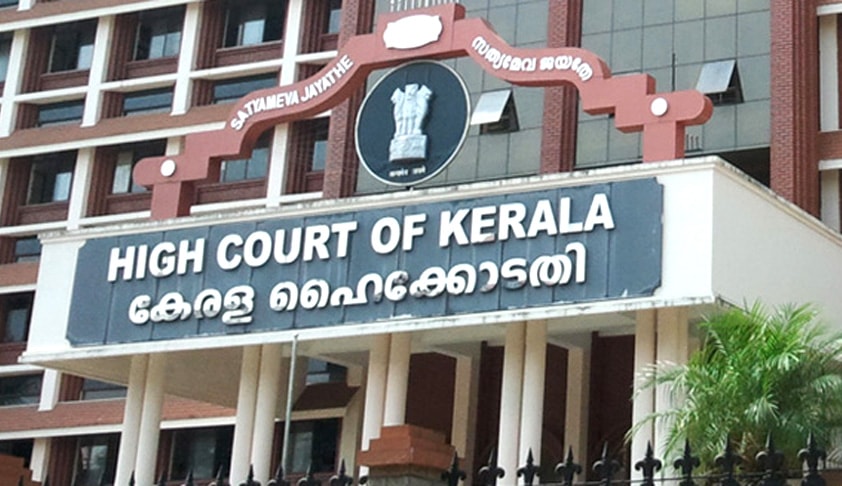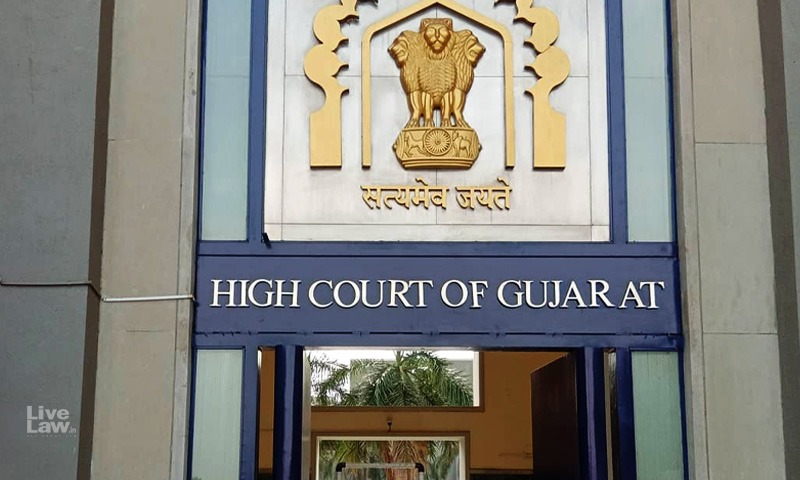P. Sam Koshy, J
1. The present writ petition has been filed assailing the order (Annexure P/1) dated 13.12.2011, passed by the Disciplinary authority imposing the
punishment of stoppage of two increments with cumulative effect. The challenge also is to the order (Annexure P/2) dated 14.05.2012, by which the
appeal against the punishment order has been rejected by the Appellate authority.
2. The brief facts of the case is that the petitioner while working as an Assistant Project Officer under the respondent No.3 was served with a charge
sheet on 05.04.2000, thereafter the Disciplinary authority appointed the Collector as the Inquiry Officer to inquire into the charges which have been
leveled against the petitioner.
3. The Collector instead of conducting an inquiry further appointed the Additional Collector as an Inquiry Officer to inquire into the charges which
have been leveled against the petitioner. Thereafter the Additional Collector submitted his inquiry report on 26.05.2010 based upon which the
Disciplinary authority vide the impugned order is said to have imposed the order of punishment of stoppage of two annual increments with cumulative
effect. The appeal preferred against the said order too stood rejected vide Annexure P/1 and P/2 respectively.
4. The grounds of challenge to the impugned orders are; firstly the very inquiry conducted by the Additional Collector is bad in law for the reason that
the Additional Collector was not the Inquiry Officer appointed by the Disciplinary authority. The Disciplinary authority appointed the Collector as an
Inquiry Officer but the inquiry was conducted not by the Collector, but by a person appointed by the Collector, that means the Collector in the capacity
of an Inquiry Officer had sub-delegated his powers and appointed another person as an inquiry officer, which he could not have otherwise done.
5. The second ground of challenge by the petitioner is that the order of punishment was on the recommendation made by the Chhattisgarh State Public
Service Commission and the recommendation of the Chhattisgarh State Public Service Commission was not made available to the petitioner before the
punishment order was passed and as such he could not have effectively defended himself before the Disciplinary authority.
6. Further, the petitioner also has challenged the manner in which the Inquiry Officer conducted the inquiry in as much as he was not granted
sufficient time to inspect the records, on the basis of which the charges have been leveled against the petitioner. It was also the contention of the
petitioner that the witnesses, who have been examined before the Inquiry Officer, also have not been able to prove the case against the petitioner and
they have in fact supported the case of the petitioner. Thus the order of punishment by the Disciplinary authority is without any strong basis.
7. It was also the contention of the petitioner that the inquiry also stands vitiated for the reason that during the course of the hearing, some of the
witnesses were in fact examined by the Inquiry Officer himself and on which date there was no Presenting officer present during the course of the
inquiry, which also is prejudicial to the interest of the petitioner. For all these reasons it was prayed that the writ petition deserves to be allowed.
8. The State counsel on the other hand submits that it is a case where a thorough departmental enquiry was conducted and all the witnesses on behalf
of the department were also examined before the Inquiry Officer and the Disciplinary authority has taken into consideration the entire evidence, which
have come on record and also the documents, which were produced during the course of inquiry and then reached to the conclusion that the petitioner
was guilty of having committing the misconduct and it is only thereafter that the order of punishment was passed. As such there is no scope of any
interference with the order of punishment. He further submits that even otherwise the Appellate authority has also considered and taken note of all the
objections, which the petitioner has raised in his appeal and then reached to the conclusion that there was no merits in the appeal and rejected the
same and as such since there is concurrent findings by the Disciplinary authority as well as by the Appellate authority, the scope of interference by
way of a judicial review further gets reduced and the petition deserves to be rejected.
9. It was also the contention of the State counsel that so far as the objections, which the petitioner has raised in the present writ petition, those are all
hyper technical grounds, which may not be of much relevance for the reason that no substantial prejudice has been caused to the interest of the
petitioner in the course of conducting of the departmental enquiry and for which reason also the petition deserves to be rejected.
10. Having heard the contentions put forth on either side and on perusal of record, this Court feels it proper at the outset to decide the claim of the
petitioner on two primary issues that he has raised; first is whether the Inquiry Officer could have further sub-delegated his power being an Inquiry
Officer by appointing another person as an Inquiry Officer; and second is the effect of non-providing of the recommendation of the Chhattisgarh State
Public Service Commission to the delinquent employee before the punishment order was passed.
11. So far as the sub-delegation of powers of an Inquiry Officer is concerned, it needs no deliberation for the reason that it is by now a settled position
of law that an Inquiry Officer himself is a delegatee appointed by the Disciplinary authority to inquire into the charges, which have been leveled
against the petitioner.
12. The inquiry as such was supposed to be conducted by the Disciplinary authority, but under the service jurisprudence, the Disciplinary authority has
been given the discretion, wherein he may either himself or by appointing an Inquiry Officer get the inquiry conducted to inquire into the charges,
which have been leveled against the delinquent employee.
13. The Inquiry Officer who has been appointed by the Disciplinary authority cannot further appoint another person as an Inquiry Officer as a
substitute to inquire into the charges leveled. There cannot be a sub- delegation of delegated powers unless the Rule provides. So far as conducting of
an departmental enquiry under service jurisprudence is concerned, there is no provision, which provides for an Inquiry Officer appointing another
person as an Inquiry Officer on his behalf. The entire departmental enquiry in the instant case stands vitiated only on this ground alone.
14. Coming to the second issue as to the effect of non-providing of the recommendation made by the Chhattisgarh State Public Service Commission to
the delinquent employee, it would be relevant at this juncture to refer to the judgment of the Hon'ble Supreme Court in the case of ""S.N. Narula v.
Union of India & Others"" (2011) 4 SCC 591, wherein in paragraph No.6, it has been held as under:-
6. We heard the learned counsel for the appellant and the learned counsel for the respondent. It is submitted by the counsel for the appellant that the
report of the Union Public Service Commission was not communicated to the appellant before the final order was passed. Therefore, the appellant
was unable to make an effective representation before the disciplinary authority as regards the punishment imposed.
15. A similar view has further been taken by the Hon'ble Supreme Court in one of its recent decisions reported in (2014) 7 SCC 340 in the case of
Union of India & Others v. R.P. Singh"" wherein in paragraphs No. 12 & 13 it has been held as under:
12. We will be failing in our duty if we do not take note of the submission of Mr. W.A. Qadri that the decision in S.N. Narula case is not an authority
because the tribunal had set aside the order of the disciplinary authority on the ground that it was a non-speaking order. Be that as it may, when the
issue was raised before this Court and there has been an advertence to the same, we are unable to accept the submission of Mr. Qadri. The said
decision in S.N. Narula case is an authority for the proposition that the advice of UPSC, if sought and accepted, the same, regard being had to the
principles of natural justice, is to be communicated before imposition of punishment.
13. In the case of S.K. Kapoor, the Court accepted the ratio laid down in T.V. Patel as far as the interpretation of Article 320(3)(c) is concerned and,
in that context, it opined that the provisions contained in the said Article 320(3)(c) of the Constitution of India are not mandatory. While distinguishing
certain aspects, the Court observed as follows:
7. We are of the opinion that although Article 320(3)(c) is not mandatory, if the authorities do consult the Union Public Service Commission and rely
on the report of the commission for taking disciplinary action, then the principles of natural justice require that a copy of the report must be supplied in
advance to the employee concerned so that he may have an opportunity of rebuttal. Thus, in our view, the aforesaid decision in T.V. Patel case is
clearly distinguishable.
After so stating the two-Judge Bench opined that when the disciplinary authority does not rely on the report of the UPSC then it is not necessary to
supply the same to the employee concerned. However, when it is relied upon then the copy of the same may be supplied in advance to the employee
concerned, otherwise, there would be violation of the principles of natural justice. To arrive at the said conclusion, reliance was placed upon the
decision in S.N. Narula case.
16. Relying upon the aforesaid two decisions of the Hon'ble Supreme Court, the Division Bench of this Court in the case of ""K.P. Dewangan v. State
of Chhattisgarh & Others"" in Writ Appeal No. 509/2015 decided on 16.12.2015 had also set-aside the order of punishment and the matter was
remitted back to the State authorities for proceeding afresh from the stage from where the illegality was detected.
17. In the light of the aforesaid decisions of the Hon'ble Supreme Court, this Court is of the opinion that that the proceedings drawn against the
petitioner in inflicting him with punishment without the copy of the recommendation of the Public Service Commission being served upon him before
punishment, the action stands vitiated.
18. Since this Court finds that conducting of the inquiry and the decision of the Disciplinary authority without giving a copy of the recommendation of
the Public Service Commission to the petitioner, the inquiry as well as the order of punishment both are not sustainable and the same deserves to be
and is accordingly set-aside remitting the matter back to the Disciplinary authority for an appropriate direction to ensure that the inquiry, if he so
proposes to be conducted by the person appointed by him alone and to take an appropriate decision thereafter.
19. Since the impugned order and the inquiry proceedings stands vitiated on these two grounds, this Court is not venturing into the other grounds,
which have been raised by the petitioner at this juncture, leaving those issues to be considered in an appropriate case in a different proceeding.
20. The writ petition thus stands allowed.

